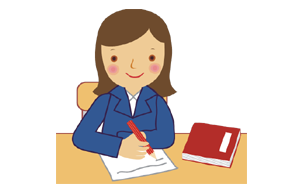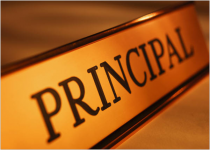Think back to your own childhood. Who were the teachers you remembered most? What did they teach you that still remains a vivid memory? Even if your desire to remember did not stem from an unquenchable thirst for knowledge, certain lessons and ideas may “stick with you” based on a story, novel method of teaching or mnemonic device.

Here’s just a few “memorable” examples from my personal teaching experience, along with anecdotes from colleagues that have made certain lessons, topics and concepts unforgettable:
•Personal connections.
It seems that once a student links the learning to something personal, that concept has new meaning and comes to life. In ELA, it’s relatively easy to ask students questions like, “Are you like the main character in any way?” or “Do you know anyone who’s experienced a similar conflict?” to elicit personal connections. For other subject areas, where personal connections may not be as clear, consider themes: in a Social Studies class, for instance, if the lesson touches on the theme of inequity, you could ask students to share examples of times in their lives where something wasn’t fair. All of these connections will help make the learning more lively, interesting, and memorable.
•Turning it into a production.
One year I taught a group of highly motivated students who were also very dramatic. Based on Rafe Esquith’s idea in his book, Teach Like Your Hair’s on Fire, I decided to invite interested students to become part of an after-school Shakespeare club. We met once a week for months, and at the end of the school year, the students acted out an excerpted version of Shakespeare’s Macbeth. We used the No Fear Shakespeare books to help students better understand the plot, but unlike Esquith, students used their scripts to perform (Rafe had students memorize the plays). The point is, that Macbeth production is something that students remembered years later: in fact, I later learned that for one student, that play was the springboard for a very illustrious acting career in high school and aspirations to become a professional actor!
•Muscle Memories.
Kinesthetic learners learn and remember best with strategies that play to their natural inclination to do and be active. In “Study Advice for Kinesthetic Learners”, the author suggests that doing something while studying – such as tapping a pencil or squeezing a stress ball – will help. Likewise, these students may do best with concrete examples, such as:
“Instead of just remembering the formula, F = m × a, you can think of a cell phone being dropped from a second story balcony, and how force, mass, and acceleration are related. (The more personal or relatable to their everyday life, the better.)”
from http://www.thestudygurus.com/kinesthetic-study-tips/
•Memorable sayings.
“30 days, hath September…” If you’re finishing this sentence with “April, June, and November,” then somewhere along the way a teacher, parent or friend taught you this device to remember the number of days in each month. Though someone else may just tell students to “memorize it”, these clever devices allow us to remember information long after the test.
It can be difficult to “unlearn” something so memorable, too. For example, my aunt once said, “turkeys and chickens get ‘done’; people get ‘finished’” to teach me the difference between using “done” and “finished” properly. Interestingly, grammarians have given the green light to use these two words interchangeably, yet that unforgettable phrase will always make me reluctant to say, “I’m done!”
Now it’s your turn: what devices and techniques have you incorporated into your instruction – or with your own children? Feel free to share your ideas and suggestions below!





Pingback: What Do Students Remember? | Think Educative